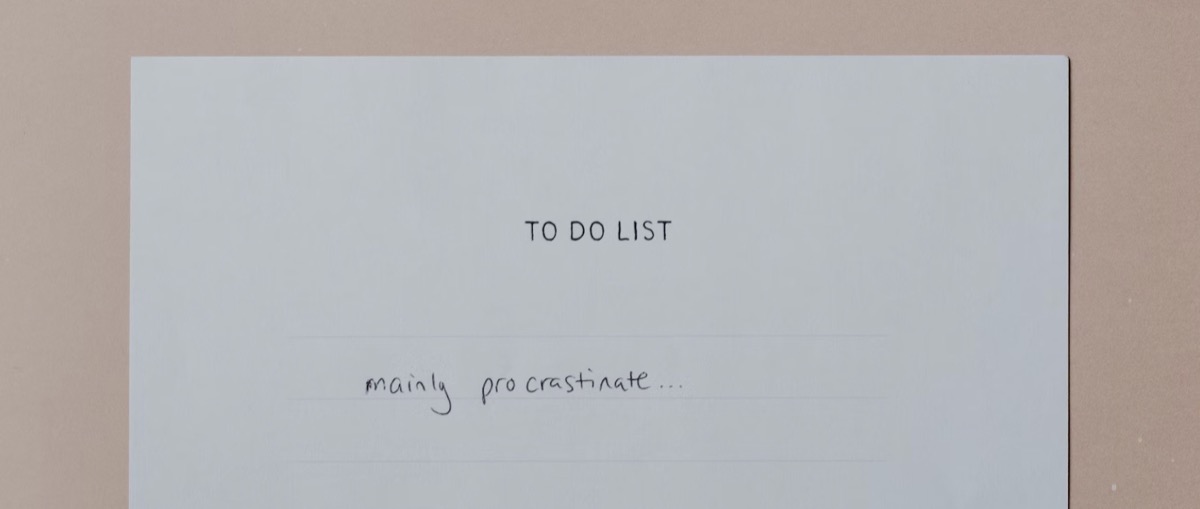5 Ways to Beat Procrastination

You’ve got deadlines due soon, but you can’t muster the energy or the motivation to work. So instead, you do random stuff, like doomscrolling on social media or rewatching your favorite series on Netflix, until it’s the last minute and you have no choice but to cram and work under pressure. If you’re lucky, you get it done in the nick of time and submit subpar work, or worse comes to worst, you don’t finish and have nothing to submit.
Many of us have been in this situation several times — it’s called procrastination. According to Future Learn, the word comes from the Latin word procrastinationem, which literally translates to “a putting off from day to day” or “deferred till the morning.” Contrary to the common misconception, procrastination goes beyond laziness. It can be caused by different things, including anxiety, perfectionism, emotional stress, or inability to focus due to undiagnosed attention-deficit hyperactivity disorder (ADHD).
Don’t let procrastination hold you back from living your life to the fullest. In this article, we share some suggestions to help you overcome some triggers that may be causing you to procrastinate.
1. Start with small and easy tasks
A serial procrastinator can easily get intimidated or overwhelmed when given a major project. If you can relate to this, try breaking it down into small actionable steps. First, list down the tasks you need to do for each step according to the level of priority. Then start working on the easiest or most urgent one. The satisfaction of slowly but surely ticking off items on your to-do list will get the ball rolling and inspire you to continue.
2. Optimize your environment
It’s hard to stay focused on your tasks or goals when surrounded by so many distractions. Research shows that clutter is a visual reminder of disorganization that drains cognitive resources, impeding mental clarity and the ability to concentrate. So, if you want to make a significant change in your life, stop procrastinating on cleaning.
Here are some steps to get you started.
- Remove visual clutter, distractions, and anything that doesn’t spark joy from your home office.
- Clean your bedroom to help improve your sleep quality and, in turn, overall physical and mental health.
- Vacuum under bed and furniture — one of the most common places people forget to clean at home — especially if you suffer from allergies, which could also hinder your will to work.
- Deep clean your kitchen. It’s where you start your day, so always keep it clean and cheerful.

3. Plan your tasks according to energy instead of time
While time management can work wonders, it’s crucial to understand how your energy works. For instance, you’ll notice that you’ll be super productive on some days and a little slow on others. That’s fine, human, and natural. However, do not expect yourself to always be in hyper-work mode because that will only lead to burnout.
Instead, listen and respect your body and give it a boost whenever you can. Here are some examples.
- Identify when you’re most productive, and then schedule and strategize to complete your tasks during these times.
- Take a quick break or call it a day whenever you feel physically or emotionally exhausted.
- Sleep, take supplements, exercise, and resolve other potential health issues affecting your energy levels.
4. Overcome the fear of failure
The fear of failure can be so overwhelming that it can paralyze you physically and emotionally, making you unable to act on potential life-changing opportunities already in front of you. Procrastination and the fear of failure are closely related. They trigger an endless cycle that, unfortunately, leads to you missing out on many exciting things in life.
While there is no cookie-cutter approach to resolving this for everyone, becoming more mindful and intentional of your thoughts, feelings, and actions can make a big difference. Give yourself permission to fail and acknowledge that it is a learning part of the process. Release yourself from the pressure. Assure yourself that nothing too bad will happen and that you can pick up the pieces to start over again.
5. Be kind to yourself
Developing positive habits and overcoming negative ones, such as procrastination, may not happen overnight for you, and that’s okay. The most effective changes usually take time, so trust the process. Do not resort to negative self-talk by calling yourself lazy or punishing yourself and becoming miserable when you feel unproductive for a day. None of this helps. It will only hurt your self-esteem and lead to further procrastinating. Instead, be kind and compassionate to yourself. It’s all right to admit that you’re a work in progress. Evaluate areas that could be improved, move on, and try again tomorrow. Don’t forget to recognize and pat yourself on the shoulder when you’re making progress, no matter how slow.
Guest post by Elizabeth Shields.